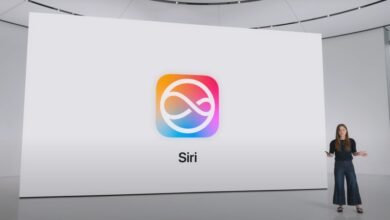Google Gemini Soars as Nano Banana 3D Figurines Go Viral

▼ Summary
– Google launched the Nano Banana image editor in late August, allowing users to transform images by describing desired changes within the Gemini app.
– The Gemini app gained 23 million users and processed 500 million image transformations in the two weeks following Nano Banana’s release.
– Gemini became the top iPhone app in multiple countries, surpassing OpenAI’s ChatGPT in popularity due to this surge.
– The viral trend of creating 3D figurines from user images drove much of Nano Banana’s popularity, with detailed prompts spreading online.
– Nano Banana is praised for its speed and ability to produce recognizable results, though it sometimes ignores prompts or delivers unexpected edits.
Google Gemini is rapidly gaining traction, moving beyond the shadow of ChatGPT thanks largely to its innovative Nano Banana image editor and a wildly popular trend involving AI-generated 3D figurines. Launched in late August, Nano Banana allows users to transform their photos in creative and often surprising ways directly within the Gemini app. By simply uploading an image and describing what changes they want, people can experiment with virtual makeovers, room redesigns, or even turn themselves or their pets into charming miniature collectibles.
Josh Woodward, vice president at Gemini and Google Labs, recently shared on X that the Gemini app added an impressive 23 million new users in just two weeks following the editor’s release. During that same period, the tool was used to alter more than 500 million images. This explosive growth has helped propel Gemini to the top of app store charts in numerous countries, including the United States, United Kingdom, Canada, France, Australia, Germany, and Italy, often displacing OpenAI’s ChatGPT from the number one spot.
The demand became so intense that Woodward announced temporary usage limits to help manage system load, describing the rush as a “full-on stampede.” So what’s behind the frenzy? While users are experimenting with all sorts of edits, the clear standout has been the ability to generate hyper-realistic 3D figurines. By providing a photo and a detailed text prompt, Gemini can create a miniature version of a person or pet, complete with a display box and even a wireframe model in the background, as if it were a digital designer’s prototype.
Though crafting the perfect prompt requires some precision, easily replicable templates have spread widely online, with Google itself sharing examples to keep the momentum going. After testing Nano Banana, it’s clear why the feature has captured so much attention. The editor is intuitive, integrated smoothly into the app, and delivers results much faster than many competing tools. That said, it isn’t flawless. Like other AI image editors, it sometimes misinterprets instructions or returns unedited images, which can be frustrating.
Still, one aspect stands out: the tool does an excellent job preserving likeness. Where other AI editors often distort facial features or produce unsettling approximations, Nano Banana manages to create cute, stylized figurines that remain recognizably true to the original subject. This balance of creativity and accuracy suggests the feature isn’t just a passing novelty, it may very well inspire a new wave of viral trends before the next innovation takes its place.
(Source: The Verge)





